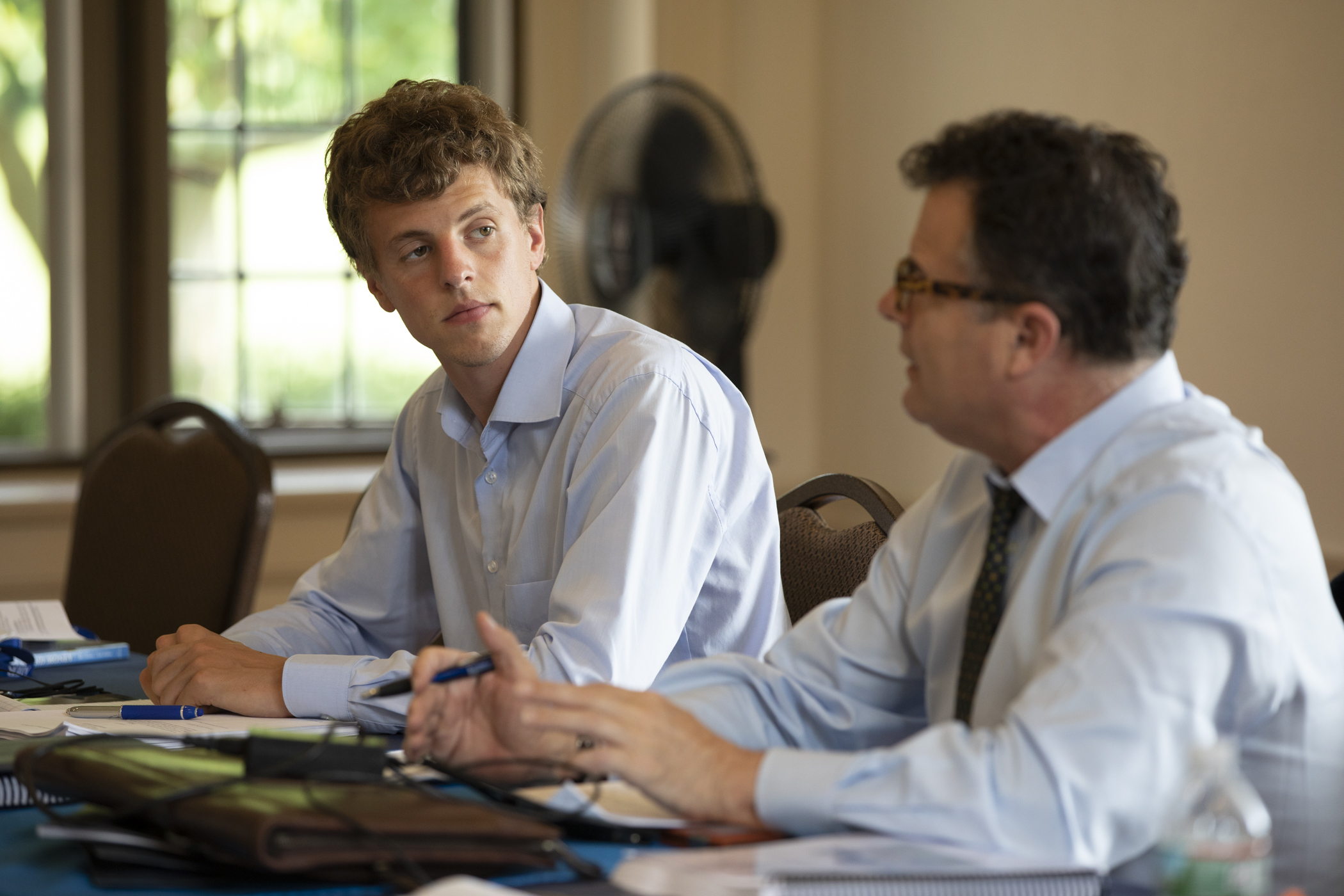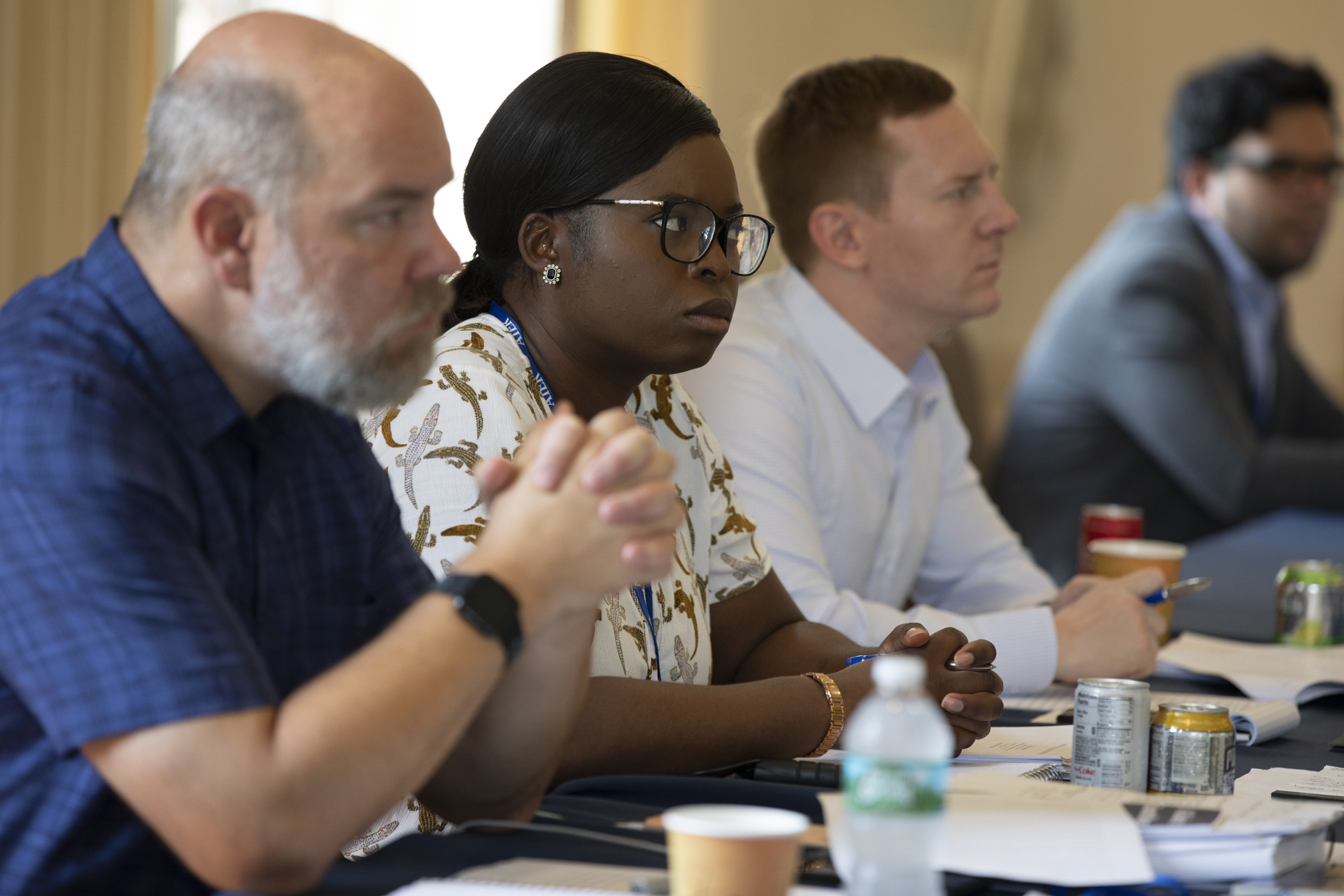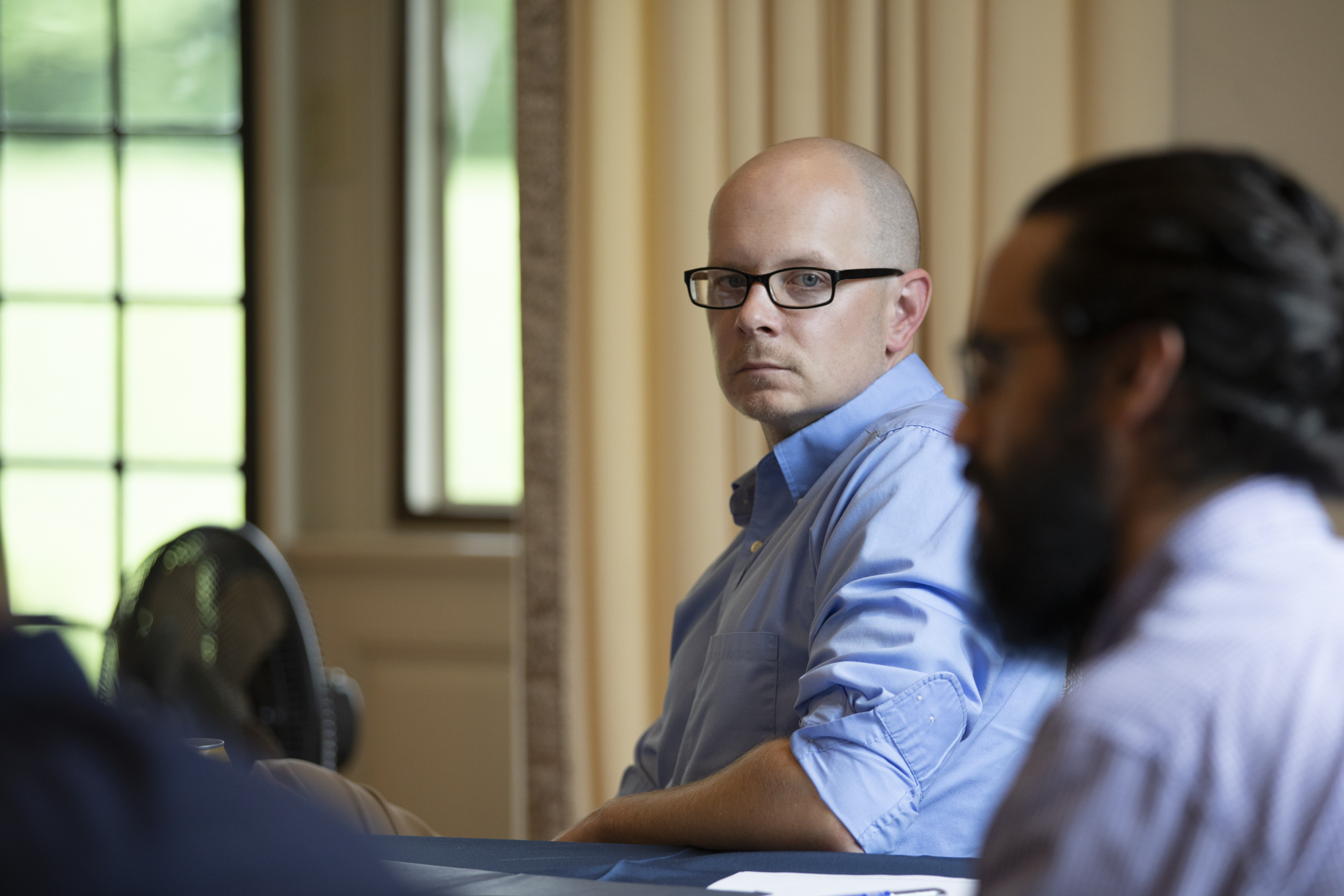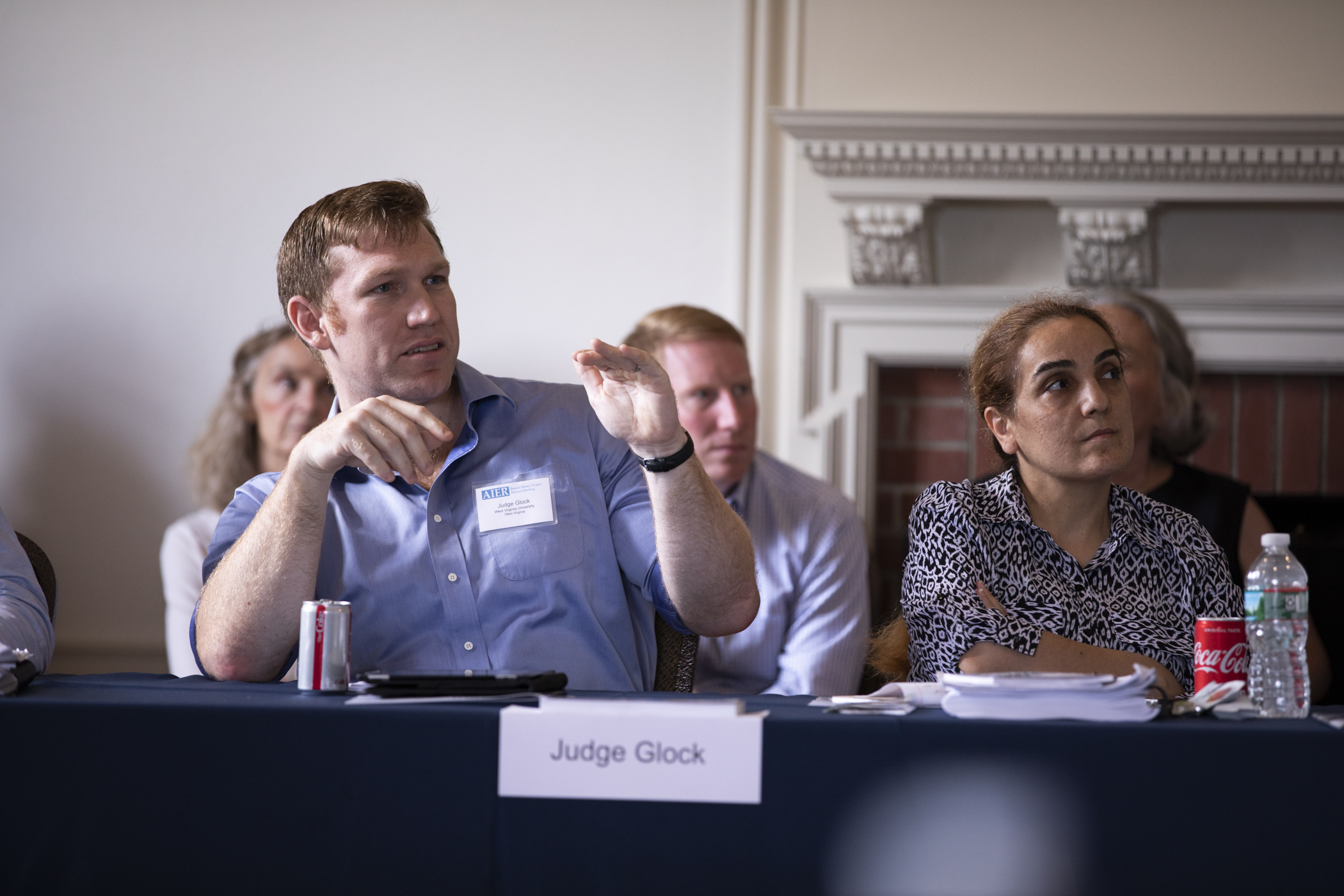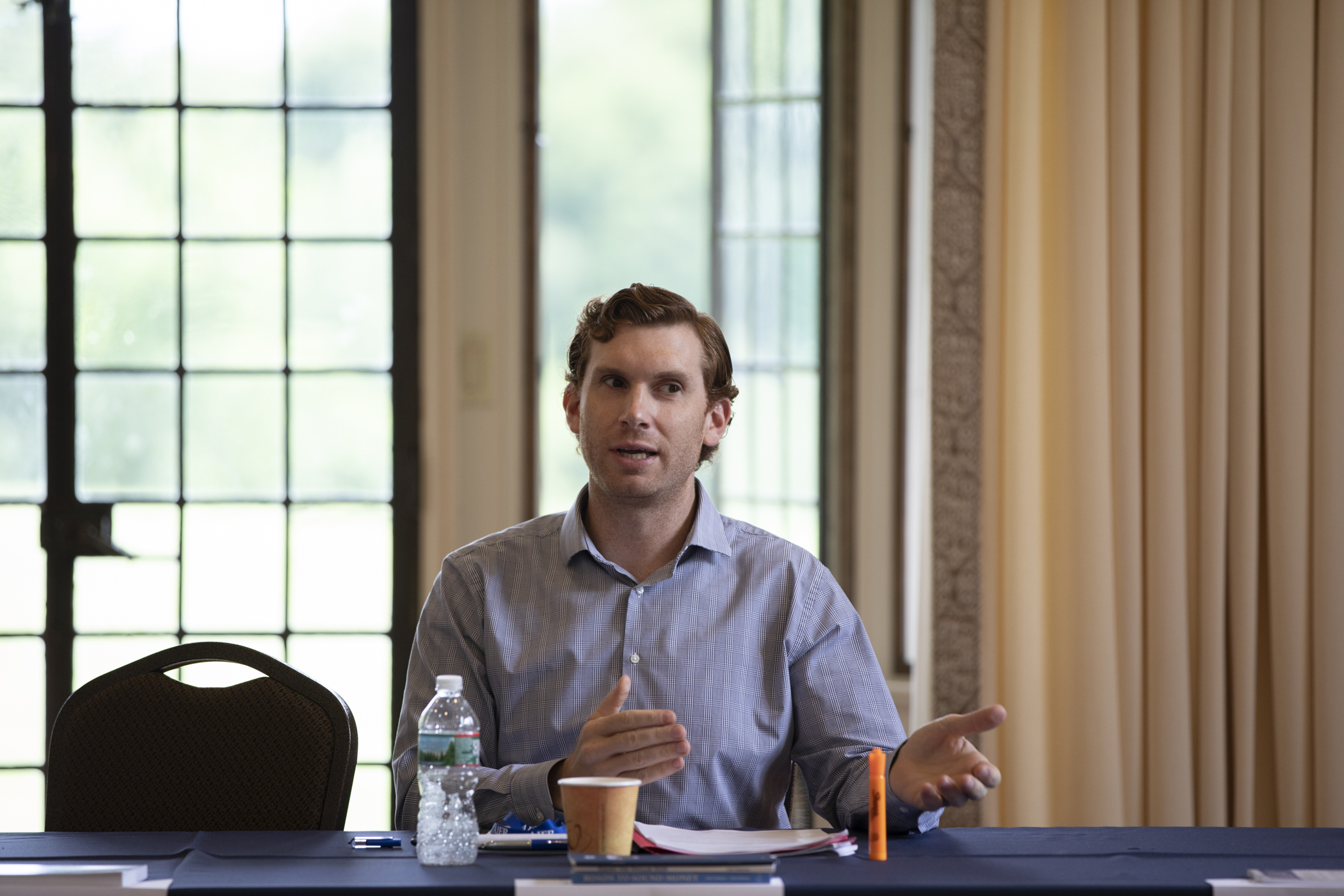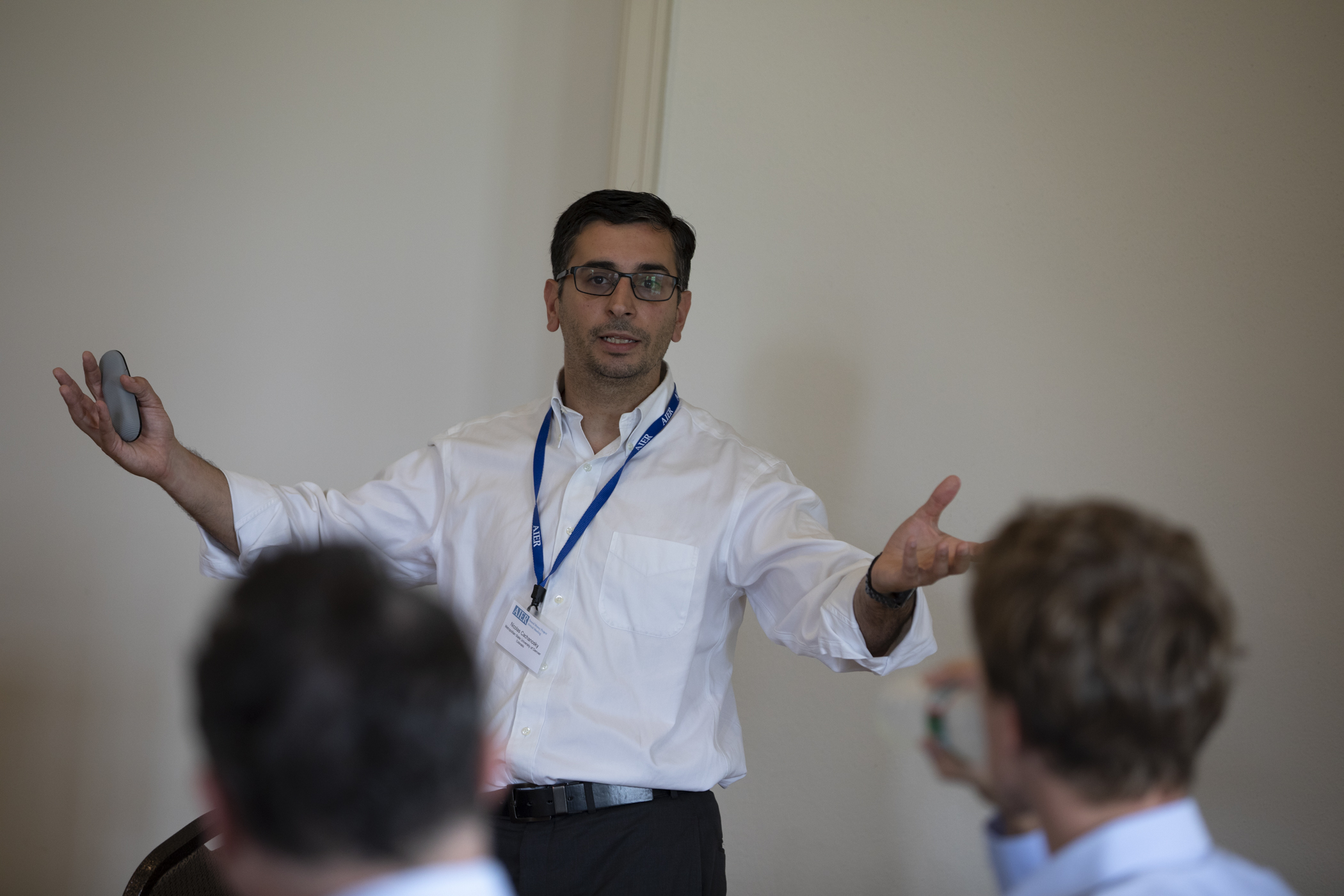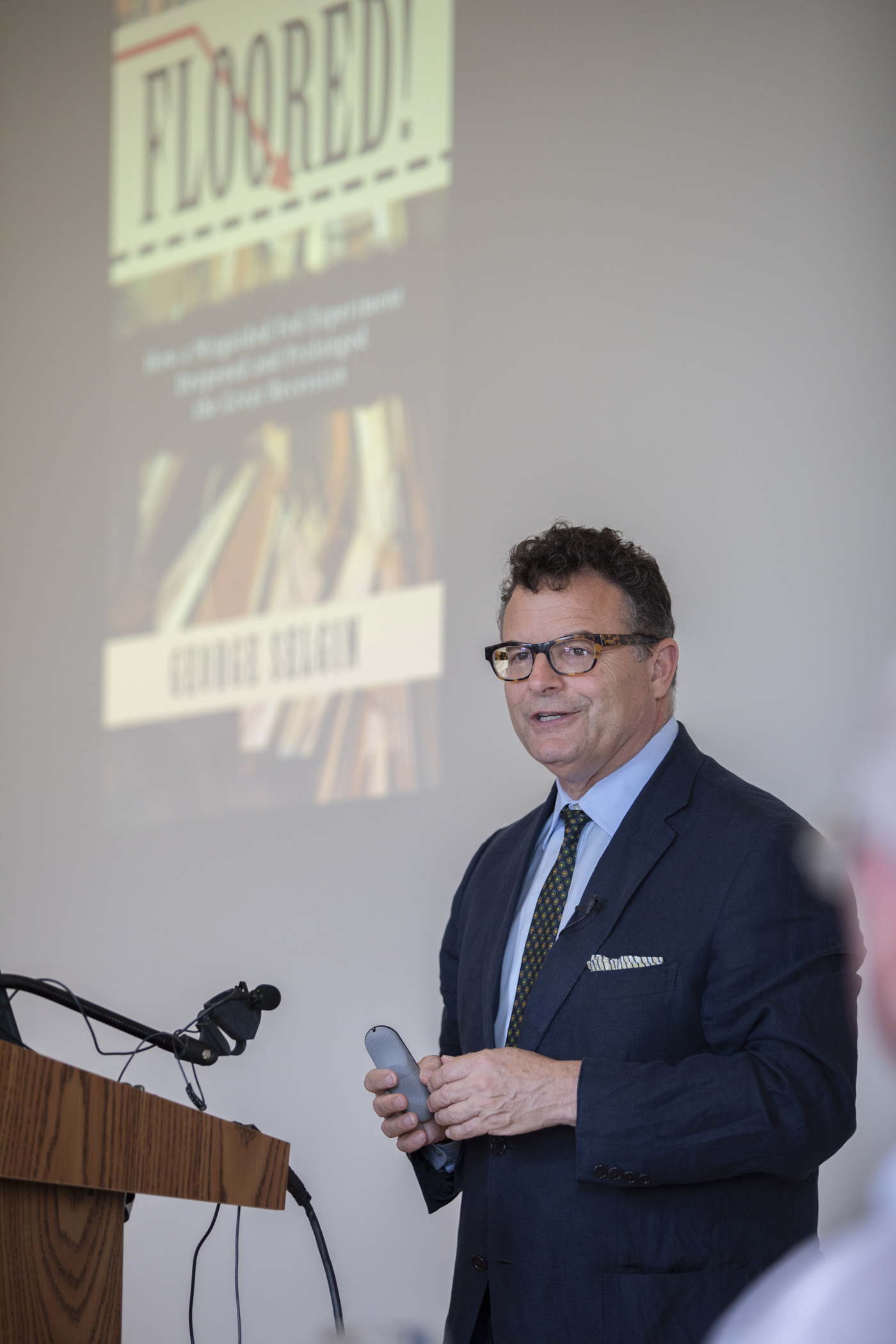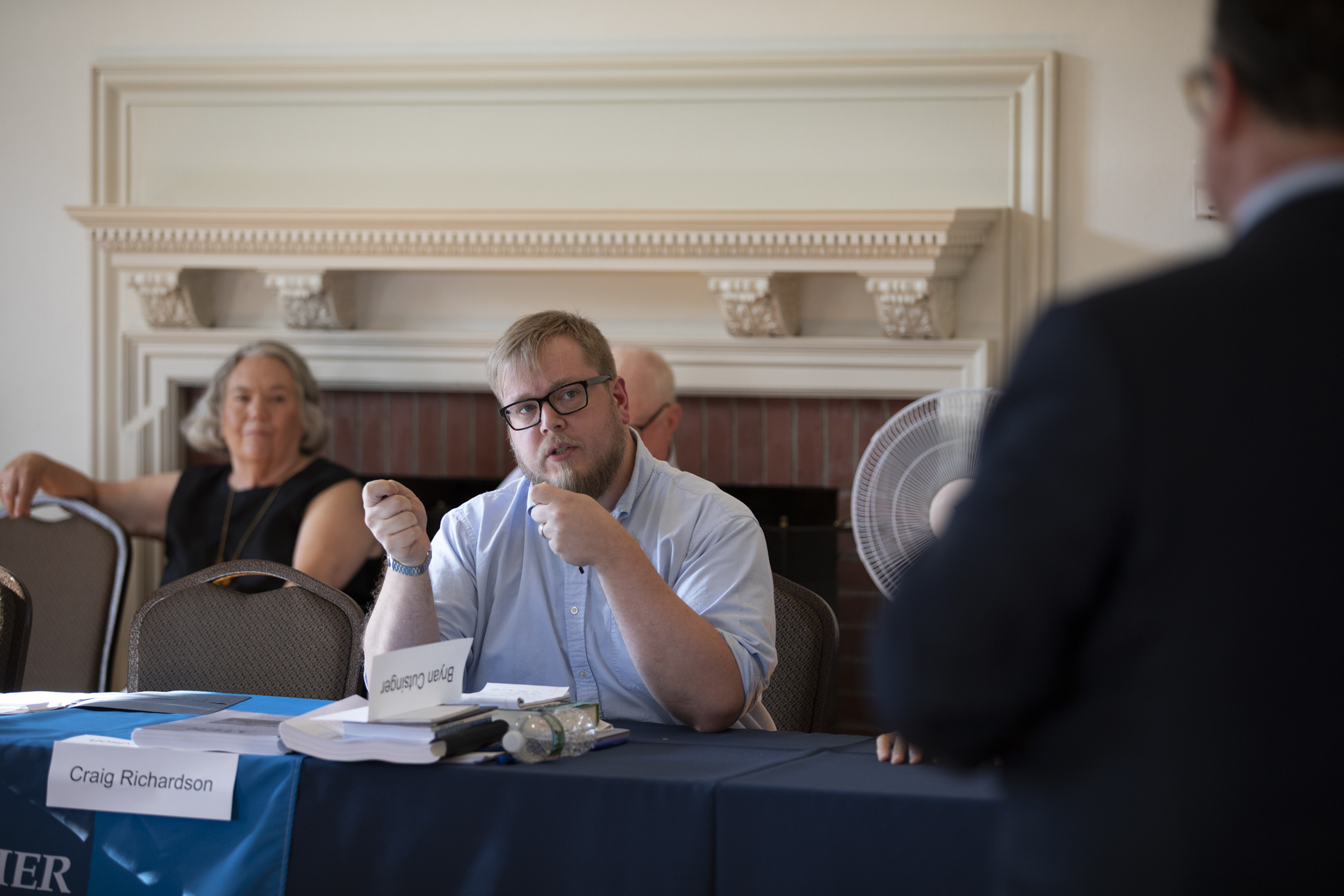The Economic and Moral Imperative of Sound Money
AIER hosted its second annual meeting of the Sound Money Project from July 26-28, 2018. The event is primarily a workshop, where leading scholars discuss cutting-edge research in macro- and monetary economics. In what follows, I offer a brief summary of the seven working papers presented and the keynote address by George Selgin.
In “Bank Lending and Interest on Excess Reserves,” Thomas Hogan argues that the Fed’s IOER policy, which began in October 2008, discouraged banks from lending. He presents a model of bank asset allocation in which reserves become substitutes for loans when the rate of IOER is near or above the market clearing federal funds rate.
Then, using quarterly data from 2000 through 2017, he finds that the Fed’s IOER policy accounts for more than half of the post-crisis decline in bank loan allocations. Hogan is currently a fellow at the Baker Institute at Rice University. Prior to that, he served as the chief economist for the U.S. Senate Committee on Banking, Housing, & Urban Affairs.
Judge Glock considers “The Missing Monetary Transmission Mechanism” in his paper. He first points out that the traditional view of inflation stemming from “too much money chasing too few goods” is absent from most contemporary economics research. Instead, modern thinkers tend to focus on financial markets, where changes in policy influence lending, borrowing, and investment behavior. He traces these views through the history of economic thought and argues that the traditional view offers less support for bailing out particular financial intermediaries and lowering rates on particular types of assets, without creating or limiting the total money supply or influencing money demand—that is, the sort of policies implemented by the Federal Reserve during the Great Recession. Glock is currently a visiting assistant professor at West Virginia University and a fellow with the Sound Money Project at AIER.
In “Smart Contracts in a Decentralized Market: The Case of OpenBazaar,” Max Gulker and coauthor Edward Stringham discuss the long-term potential of smart contracts. Specifically, they cite the benefit of pre-commitment to execution of the terms of an agreement, which reduces the ability of either party to commit fraud. They then show that these smart contracts are essential to novel decentralized trading platforms such as OpenBazaar. Gulker is a research fellow at AIER. Stringham is president of AIER.
Joshua R. Hendrickson and I consider recent propels to eliminate hand-to-hand currency in our paper, “Cash, Crime, and Cryptocurrencies.” We argue that cryptocurrencies like bitcoin are close substitutes to cash in illicit markets. Therefore, efforts to ban cash will not realize the benefits of reducing crime and tax evasion to the extent envisioned by proponents of such demonetization schemes unless they also take steps to stamp out alternatives. We extend a standard bilateral matching model of money and identify the conditions where bans on cash and cryptocurrencies reduce social welfare.
We also discuss the philosophical differences between demonetizing cash and banning close substitutes. Hendrickson is an associate professor of economics at the University of Mississippi and a senior fellow with the Sound Money Project at AIER. In addition to directing the Sound Money Project at AIER, I am an assistant professor of economics at Florida Atlantic University.
In his paper, James Caton traces “The Evolution of Hayek’s Thought on Gold and Monetary Standards.” He shows that Hayek initially supported the gold standard and paid special attention to those nations whose central banking policies tended to be relatively loose; began to change his views in 1935, quickly abandoning the dream of reestablishing the gold standard; and shifted his attention to alternative systems that might promote the same sort of stability and predictability that the gold standard provided in his later work. Caton is an assistant professor in the North Dakota State University Department of Agribusiness and Applied Economics and a fellow with the Sound Money Project at AIER.
Joshua R. Hendrickson takes a close look at “The Riksbank, Emergency Finance, Policy Experimentation, and Sweden’s Reversal of Fortune” in his paper. He argues that the creation of the Riksbank should have facilitated government borrowing and military spending. But, instead, limits on bank note issuance placed constraints on emergency government finance that led to Swedish defeat in the Great Northern War.
Later, during the Hats’ Russian War, the parliament-controlled Riksbank simply issued bank notes to finance the war. Convertibility was subsequently suspended without a future promise of restoration and the Pomeranian War was financed with the creation of irredeemable paper money. He maintains that these regimes quickly led to binding constraints on government borrowing.
Hendrickson also shows that, when the Hats took power in the Riksdag in 1739, they dramatically changed economic policy by using the bank (directly and indirectly) to give loans to firms, which were financed through the issuance of bank notes. He finds no evidence that these loans had any effect on real GDP per capita. Moreover, he shows that the Hat policy of expanding notes in circulation and generating inflation during the period of inconvertible paper money contributed to a decline in economic activity during the reversal of fortune.
In “Open Roads in Macroeconomics,” Nicolas Cachanosky discusses the debate surrounding the use of dynamic stochastic general equilibrium models in macroeconomics following the financial crisis and suggests four potential paths forward for those working in the Austrian tradtion. Specifically, he maintains that Hayek’s knowledge problem can be applied to monetary policy; that considerations of the rule of law (as opposed to the rule of experts) are relevant in the context of central banking; that loss of confidence and cascade effect can be incorporated into macroeconomic models; and that the Wicksell Effect and the average period of production during are useful concepts for considering macroeconomic fluctuation. Cachanosky is an associate professor of economics at Metropolitan State University of Denver and a fellow with the Sound Money Project at AIER.
Finally, in his forthcoming book FLOORED! How a Misguided Fed Experiment Deepened and Prolonged the Great Recession, George Selgin argues that the Fed’s policy of paying interest on reserves resulted in undesirably tight policy following the financial crisis. He explains how a floor system differs from the corridor system the Fed had traditionally employed; why the Fed’s regime changed; and how the new regime stifled a speedy recovery. You can watch the keynote address in its entirety here. Selgin is a senior fellow and director of the Center for Monetary and Financial Alternatives at the Cato Institute and Professor Emeritus of Economics at the University of Georgia.
AIER’s Sound Money Project has quickly established itself as a leading authority in monetary economics. Following the launch of the working paper series in January 2018, AIER has climbed the rankings to 73rd on SSRN’s Top 1,600 Entrepreneurship Research & Policy Network Organizations. The project’s success is the result of our scholars’ high-quality research on relevant topics in macro- and monetary economics. We will continue to grow over the next few years, building on this early research and the long tradition of sound money advocacy at AIER.
Note: Many of the aforementioned works are still in progress. Links will be added when public working paper versions are available.

